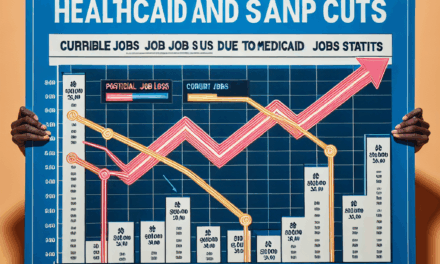HCA Reports $50M Hurricane Impact in Q3, Anticipates Larger Loss in Q4

In recent years, the healthcare industry has faced numerous challenges, from the COVID-19 pandemic to natural disasters. One of the most significant impacts in 2023 has been the series of hurricanes that have affected various regions in the United States. HCA Healthcare, one of the largest healthcare providers in the country, reported a $50 million impact from hurricanes in the third quarter (Q3) of 2023. As the company braces for potentially larger losses in the fourth quarter (Q4), it is crucial to understand the multifaceted effects of these natural disasters on healthcare operations, financial stability, and patient care.
The Immediate Financial Impact of Hurricanes on HCA
Hurricanes have a direct and immediate financial impact on healthcare facilities. For HCA, the $50 million loss in Q3 is a testament to the severity of these natural disasters. This section delves into the specific financial repercussions faced by HCA and similar healthcare providers.
Damage to Infrastructure
One of the most apparent financial impacts of hurricanes is the damage to healthcare infrastructure. Hospitals and clinics are often in the path of these storms, leading to significant structural damage. For HCA, this means costly repairs and renovations to ensure that facilities are safe and operational.
For example, during Hurricane Ida in 2021, several hospitals in Louisiana faced extensive damage, requiring millions of dollars in repairs. Similarly, HCA facilities in hurricane-prone areas have had to allocate substantial resources to rebuild and fortify their structures against future storms.
Increased Operational Costs
Beyond physical damage, hurricanes also lead to increased operational costs. These include expenses related to emergency preparedness, such as stocking up on medical supplies, fuel for generators, and additional staffing to handle the surge in patients during and after the storm.
HCA has had to invest heavily in these areas to ensure that their facilities remain functional during hurricanes. This includes not only immediate costs but also long-term investments in infrastructure improvements and emergency response systems.
Loss of Revenue
Another significant financial impact is the loss of revenue due to the disruption of regular healthcare services. During hurricanes, elective procedures and non-emergency appointments are often canceled, leading to a decrease in revenue for healthcare providers.
For HCA, this loss of revenue can be substantial, especially in regions heavily affected by hurricanes. The company must balance the need to provide emergency care with the financial realities of lost income from routine services.
Insurance and Reimbursement Challenges
Insurance and reimbursement issues also play a role in the financial impact of hurricanes on healthcare providers. While insurance can cover some of the costs associated with storm damage, there are often delays and disputes over claims, leading to financial strain.
HCA, like many healthcare providers, must navigate these challenges to secure the necessary funds to cover their losses. This can be a time-consuming and complex process, further complicating the financial recovery from hurricanes.
Long-term Financial Implications
The financial impact of hurricanes is not limited to immediate costs. There are long-term implications as well, including increased insurance premiums, the need for ongoing infrastructure improvements, and potential changes in patient demographics as communities rebuild and recover.
For HCA, these long-term financial considerations are critical as they plan for future hurricanes and other natural disasters. The company must balance short-term recovery efforts with long-term financial planning to ensure continued stability and growth.
Operational Challenges During and After Hurricanes
While the financial impact of hurricanes is significant, the operational challenges faced by healthcare providers like HCA are equally daunting. This section explores the various operational hurdles that arise during and after hurricanes, affecting patient care and staff well-being.
Emergency Preparedness and Response
Effective emergency preparedness and response are crucial for healthcare providers during hurricanes. HCA has developed comprehensive emergency plans to ensure that their facilities can continue to operate during storms. This includes securing backup power sources, ensuring adequate staffing, and coordinating with local emergency services.
However, even with extensive planning, hurricanes can present unexpected challenges. For example, during Hurricane Harvey in 2017, several hospitals in Texas faced flooding that exceeded their preparedness plans, leading to evacuations and disruptions in care.
Staffing and Workforce Management
Staffing is a critical concern during hurricanes, as healthcare providers must ensure that they have enough personnel to handle the increased demand for emergency care. HCA has implemented strategies to address this challenge, such as offering incentives for staff to remain on-site during storms and coordinating with temporary staffing agencies.
However, hurricanes can also lead to staff shortages, as employees may be unable to reach their workplaces due to road closures or personal emergencies. This can strain existing staff and impact the quality of care provided to patients.
Patient Care and Safety
Ensuring patient care and safety during hurricanes is a top priority for healthcare providers. HCA has implemented protocols to protect patients, such as relocating vulnerable individuals to safer areas within facilities and ensuring that critical medical equipment remains operational.
Despite these efforts, hurricanes can still pose risks to patient safety. For example, power outages can disrupt life-saving equipment, and flooding can lead to contamination and infection risks. Healthcare providers must remain vigilant and adaptable to address these challenges as they arise.
Supply Chain Disruptions
Hurricanes can also disrupt supply chains, leading to shortages of essential medical supplies and medications. HCA has taken steps to mitigate these risks by maintaining stockpiles of critical supplies and establishing relationships with multiple suppliers.
However, supply chain disruptions can still occur, particularly if transportation routes are affected by storm damage. Healthcare providers must be prepared to adapt to these challenges and find alternative solutions to ensure that patient care is not compromised.
Communication and Coordination
Effective communication and coordination are essential during hurricanes, both within healthcare facilities and with external partners. HCA has invested in communication systems to ensure that staff can stay informed and connected during storms.
However, communication challenges can still arise, particularly if power and communication networks are disrupted. Healthcare providers must have contingency plans in place to address these issues and ensure that critical information is shared promptly and accurately.
The Broader Impact on Communities and Healthcare Systems
Hurricanes not only affect individual healthcare providers like HCA but also have broader implications for communities and healthcare systems as a whole. This section examines the wider impact of hurricanes on public health, community resilience, and healthcare infrastructure.
Public Health Concerns
Hurricanes can exacerbate existing public health concerns and create new challenges for communities. Flooding and storm damage can lead to outbreaks of waterborne diseases, while power outages can disrupt access to clean water and sanitation.
HCA and other healthcare providers play a critical role in addressing these public health concerns by providing emergency care and supporting community health initiatives. However, the scale of these challenges can be overwhelming, requiring coordinated efforts from multiple stakeholders.
Community Resilience and Recovery
Building community resilience and supporting recovery efforts are essential components of hurricane response. HCA has been involved in various initiatives to support communities affected by hurricanes, such as providing financial assistance and partnering with local organizations to deliver essential services.
However, recovery is a long-term process that requires sustained investment and collaboration. Healthcare providers must work closely with government agencies, non-profit organizations, and community leaders to support recovery efforts and build resilience against future storms.
Impact on Healthcare Infrastructure
Hurricanes can have a lasting impact on healthcare infrastructure, leading to changes in how facilities are designed and operated. HCA has invested in infrastructure improvements to enhance the resilience of their facilities, such as elevating critical equipment and installing flood barriers.
These investments are essential to ensure that healthcare facilities can withstand future storms and continue to provide care to their communities. However, they also require significant financial resources and long-term planning.
Economic Implications for Communities
The economic impact of hurricanes extends beyond healthcare providers to affect entire communities. Storm damage can lead to job losses, business closures, and decreased economic activity, further straining local resources.
HCA and other healthcare providers can play a role in supporting economic recovery by providing stable employment opportunities and investing in local communities. However, broader economic recovery efforts require coordinated action from multiple sectors.
Policy and Regulatory Considerations
Hurricanes also have implications for policy and regulatory frameworks related to healthcare and emergency management. HCA has been involved in advocacy efforts to promote policies that support healthcare resilience and emergency preparedness.
These efforts are essential to ensure that healthcare providers have the resources and support they need to respond effectively to hurricanes and other natural disasters. However, policy changes can be slow and require collaboration between multiple stakeholders.
Strategies for Mitigating Future Hurricane Impacts
As hurricanes become more frequent and severe due to climate change, healthcare providers like HCA must develop strategies to mitigate future impacts. This section explores various approaches to enhance resilience and preparedness for future storms.
Investing in Resilient Infrastructure
One of the most effective ways to mitigate future hurricane impacts is to invest in resilient infrastructure. HCA has prioritized infrastructure improvements to enhance the durability of their facilities, such as reinforcing roofs and windows and installing flood barriers.
These investments are essential to ensure that healthcare facilities can withstand future storms and continue to provide care to their communities. However, they also require significant financial resources and long-term planning.
Enhancing Emergency Preparedness Plans
Effective emergency preparedness plans are critical for healthcare providers to respond to hurricanes. HCA has developed comprehensive plans that include protocols for evacuations, staffing, and supply chain management.
However, these plans must be regularly reviewed and updated to address new challenges and incorporate lessons learned from previous storms. Healthcare providers must also conduct regular training and drills to ensure that staff are prepared to respond effectively during hurricanes.
Leveraging Technology and Innovation
Technology and innovation can play a key role in enhancing resilience and preparedness for hurricanes. HCA has invested in advanced communication systems and data analytics to improve their ability to monitor and respond to storms.
These technologies can help healthcare providers anticipate and address challenges more effectively, such as predicting patient surges and optimizing resource allocation. However, they also require ongoing investment and collaboration with technology partners.
Building Partnerships and Collaborations
Building partnerships and collaborations with other stakeholders is essential for effective hurricane response. HCA has worked closely with government agencies, non-profit organizations, and community leaders to coordinate response efforts and support recovery initiatives.
These partnerships can enhance the effectiveness of response efforts and ensure that resources are used efficiently. However, they also require ongoing communication and collaboration to address evolving challenges.
Advocating for Policy and Regulatory Support
Advocacy for policy and regulatory support is critical to ensure that healthcare providers have the resources and support they need to respond effectively to hurricanes. HCA has been involved in advocacy efforts to promote policies that support healthcare resilience and emergency preparedness.
These efforts are essential to ensure that healthcare providers can continue to provide care during hurricanes and other natural disasters. However, policy changes can be slow and require collaboration between multiple stakeholders.
Conclusion: Navigating the Future of Healthcare in a Changing Climate
The impact of hurricanes on healthcare providers like HCA is a stark reminder of the challenges posed by climate change and natural disasters. As hurricanes become more frequent and severe, healthcare providers must develop strategies to enhance resilience and preparedness.
HCA’s experience highlights the multifaceted impact of hurricanes on healthcare operations, financial stability, and patient care. By investing in resilient infrastructure, enhancing emergency preparedness plans, leveraging technology, building partnerships, and advocating for policy support, healthcare providers can mitigate future impacts and continue to provide care to their communities.
Ultimately, navigating the future of healthcare in a changing climate requires collaboration and innovation from all stakeholders. By working together, we can build a more resilient healthcare system that is better equipped to withstand the challenges of the future.





